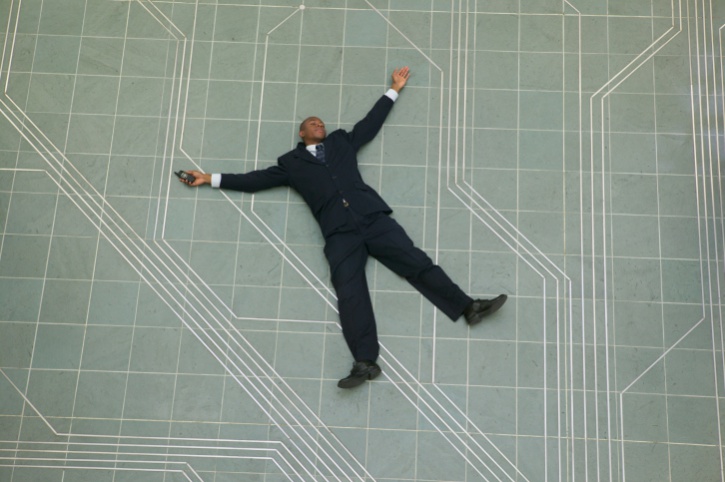
In a hospital recovery room, I fainted. I wasn’t even a patient.
After seeing my son wake up from a simple dental surgery, I lost my mind and soon, my consciousness. I started sweating instantly. I knew I was having a panic attack, but I’d never passed out before. “I think I need air,” I said to the nurse tending to my son.
“I’m sure I’m fine but if you could just watch him for a moment…” And then, bam. My knees buckled, and I don’t even remember what happened after falling to the floor. I was out cold.
READ: 5 People Most Likely To Become Dehydrated
I woke up — I think minutes later — in a wheelchair surrounded by a troop of nurses, concern on their faces as they continued to check all of my vitals. Now, I was the one hooked up to machines. Blood pressure, okay now. Pulse, fine. Temperature, completely normal.
A healthy person should not be passing out in a room filled with post-surgery folks waking up from anesthesia. But, I did and it was likely all my fault. I didn’t eat all day, I drank a large coffee, and I let the anxiety and stress get to me.
If you faint and there are no major health issues, it may be because of a common problem affecting your blood pressure. When it drops, the brain doesn’t get enough oxygen. That lack of oxygen circulation can cause a loss of consciousness.
READ: Fainting: How Serious Is It?
Simple, everyday lapses can cause you to faint, but here are some of the ways to prevent it:
1. Give in to hunger.
Sugar and salt are both essential in keeping your blood levels intact. Eating regularly — not skipping meals — helps. If you feel yourself getting faint, snack on crackers or pretzels. Paired with juice, it can help your salt and sugar levels.
READ: Is Your Blood Pressure TOO Low?
2. Hydrate often.
When you’re dehydrated, there are several problems that occur — one being a drop in blood pressure. As your body works to stabilize it, less oxygen reaches your brain. The simplest way to stay hydrated? Drink water, and you may even need more than the historic rule of eight 8-ounce glasses per day. You may need more or less, depending on how much you sweat and what your diet contains, so you should pay attention to your body.
3. Calm down and relieve stress.
Anxiety, fear or emotional stress can cause a drop in blood pressure. Consider a calming activity such as meditation, aromatherapy from essential oil scents, exercise, or rest.
4. Monitor pain.
Sudden pain can be a physical trigger of fainting. Because your body isn’t expecting it, your blood pressure can drop quickly. It’s another reason not to ignore signs that something may be wrong, even if the pain is currently manageable.









